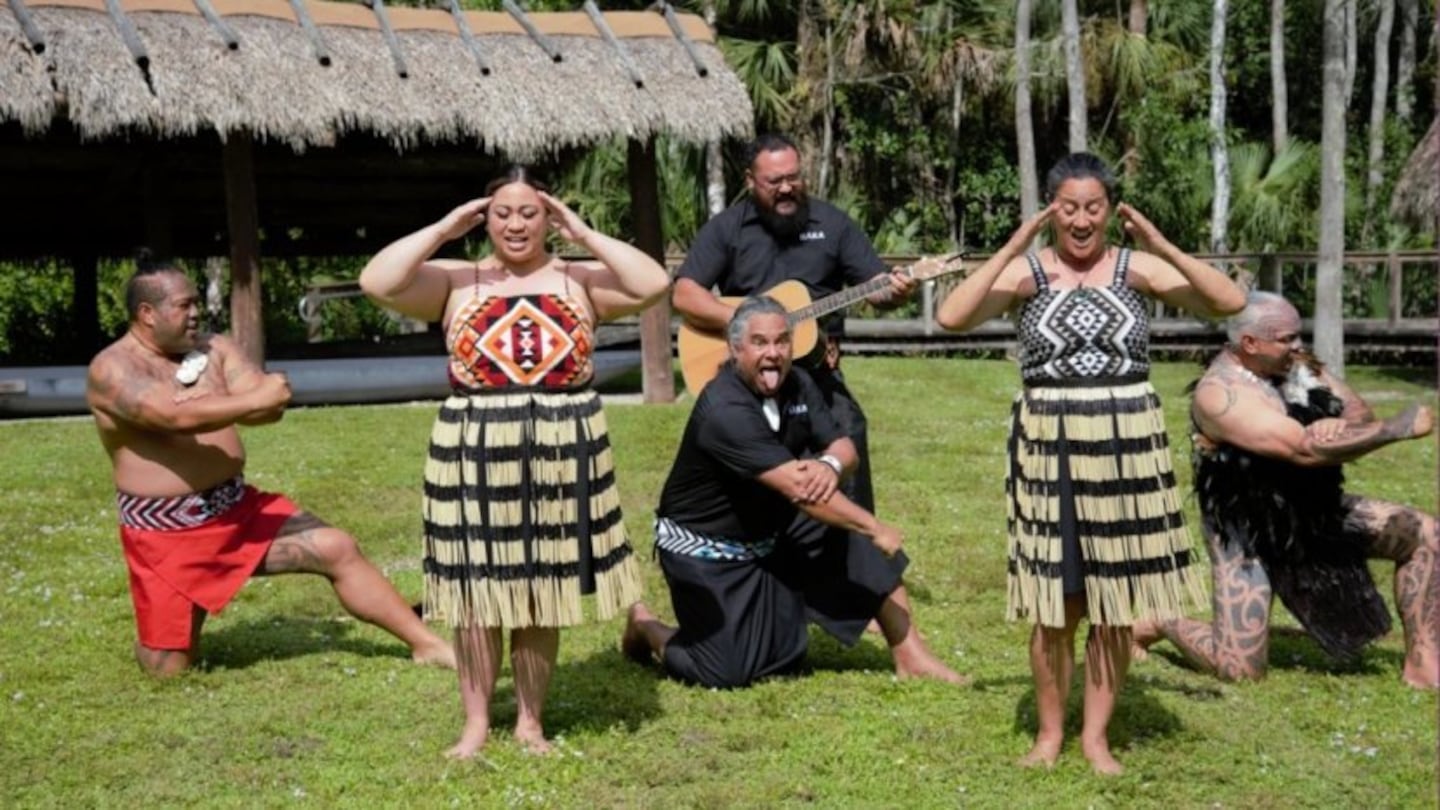Haka Cultural Experience performing during Native American Heritage Month celebrations at the Seminole Tribe of Florida’s Ah-Tah-Thi-Ki Museum. Photo / Tara Calligan / NPR
The sounds and sights of Haka, will be a new but welcome addition to Native American Heritage Month celebrations in the United States this year.
20 members of Waikato's Haka Cultural Experience have been invited to perform at the Seminole Tribe of Florida's Ah-Tah-Thi-Ki Museum for its American Indian Arts Celebration (AIAC) event now in its 20th year.
The event on the tribe’s Big Cypress Seminole Indian Reservation launched as a way to educate local schools about Seminole culture during Native American Heritage Month, but director of the Museum Gordon Wareham says the group now looks to embrace and network with other indigenous cultures too.
“We're bringing in indigenous people from around the world to come and celebrate this special month with us and educate not just our tribal members, but also local, surrounding communities,” Wareham says.
Craig Muntz the group’s coordinator who also serves as Tainui Waka Tourism Secretariat says, it’s great to see so many people embrace te ao Māori overseas, but also to have the opportunity to dispel some misconceptions people might have about Haka, perhaps because of its notoriety during sporting clashes.
“A common misconception of Haka is that it's just a war dance. When we know Haka is also composed to celebrate and to acknowledge and pay tribute.” Muntz says.
Wareham sees closeness between Māori and the Seminole Tribe in staunch opposition to colonisation, and subsequent pushback against colonial forces.
The Seminoles are known as the "Unconquered People" with their tūpuna notable for their successful evasion of capture by the U.S. Army in the 19th century.
More than 2,000 Seminoles live on six Florida reservations, while close to 700 live on the Big Cypress Reservation in the heart of the Everglades.
“Our story usually ends in 1850," Wareham says. "Right after the third Seminole Wars, we’re not mentioned anywhere. But in Florida, I always have a saying that, ‘we're not part of Florida's history. We are Florida.’ We've always been here. And we will always be here.”
Wareham says indigenous cultures share a unique bond.
“You come from someplace and someplace special," said Wareham. "That's your lineage. That’s your heritage,


